Empowering patients through personalized care, advanced treatments, and holistic approaches for optimal spine health and overall well-being
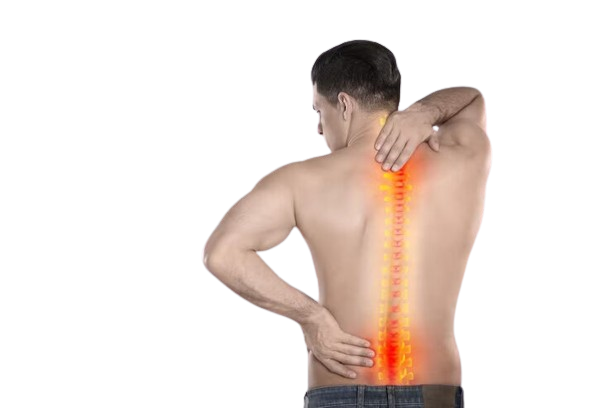
Empowering patients through personalized care, advanced treatments, and holistic approaches for optimal spine health and overall well-being





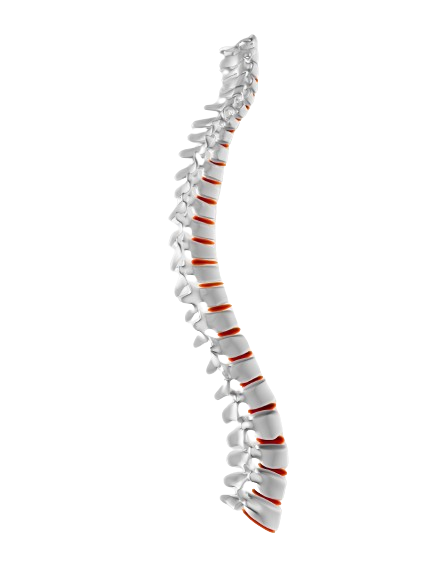
Spinal disorders affect all age groups from birth to the elderly. Spinal disorders are very common and affect millions of people. There are multiple causes affecting the spine, apart from the natural age related wear and tear changes.
A Spine Surgery practice that involves integrating cutting edge technology, personalised patient care, minimally invasive techniques and patient education to achieve optimal outcomes and improved quality of life.
Using the principle of “Minimal surgery for Maximum results”, the Medspine team endeavours to provide state-of-the-art spine care to each patient with a collaborative multidisciplinary approach and unwavering dedication to restoring mobility, function and quality of life.

With years of experience in spine surgery, Dr Phani Kiran S, Senior Consultant Spine Surgeon will assess you and suggest the treatment option that is right for you.
We at Medspine clinics, understand the importance of educating all our patients about the spinal problems and the most effective ways to take care of their spine.
With the right resources and support system, those with a spinal cord can live life to the fullest. That’s why MedSpine have created this list of resources based on the specific needs of those with spinal cord problems and injuries. You’ll find our services to make it easier for you. We hope you visit this page often and find value.

Most of the spinal problems do not need surgery. Physiotherapy, individualised exercise protocols, lifestyle modifications and spine injection procedures relieve spinal pain.
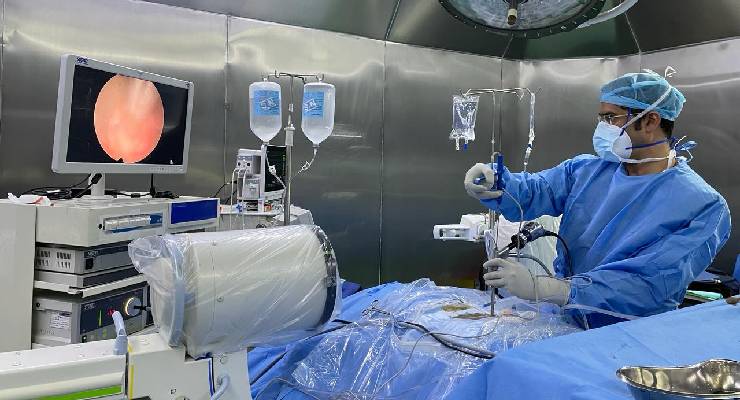
The field of spinal treatments has witnessed a remarkable advancement with the introduction of endoscopic spine surgery.
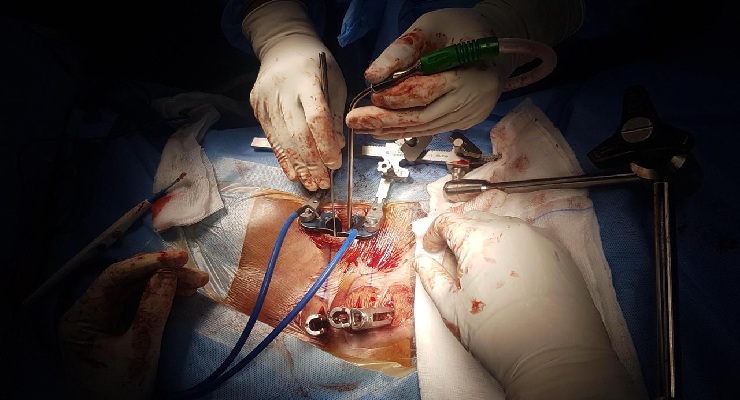
MISS has several advantages - Minimal postoperative pain, early postoperative mobilization, short hospital stay, rapid recovery and return to work.
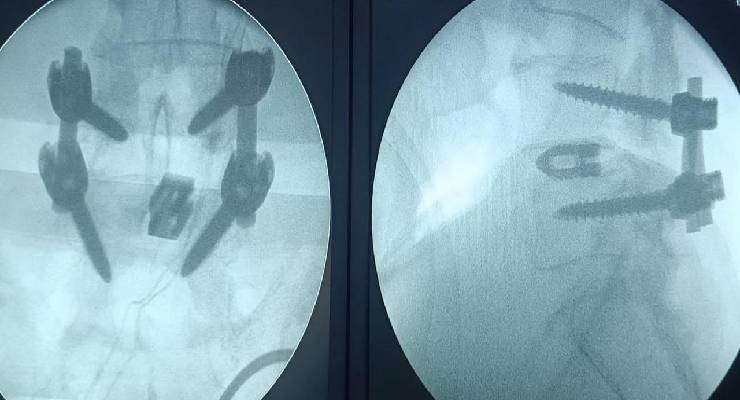
Lumbar fusion surgery is a procedure used to treat conditions affecting the lower (lumbar) spine, particularly when there is instability or abnormal motion between two or more vertebrae.
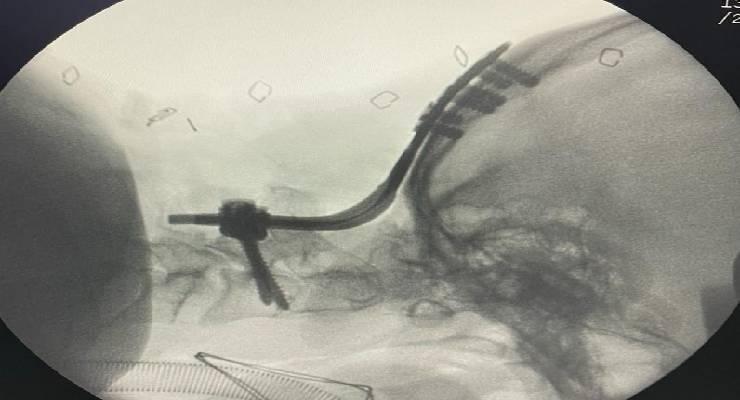
Cervical spine surgery refers to surgical procedures performed on the cervical spine, which is the portion of the spine located in the neck region.
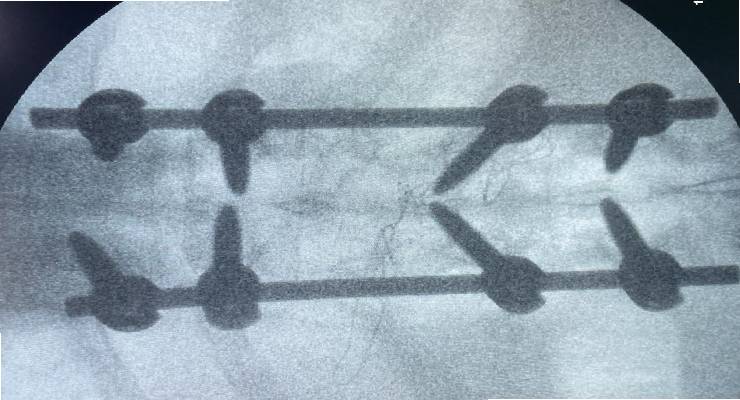
Bacterial infections of the spine can cause severe disability and even paralysis if not treated in time. Tuberculosis of the spine is common in India. Early diagnosis and treatment is important in treating spinal infections.

Spine tumors are abnormal growths of tissue that develop within or near the spinal column.
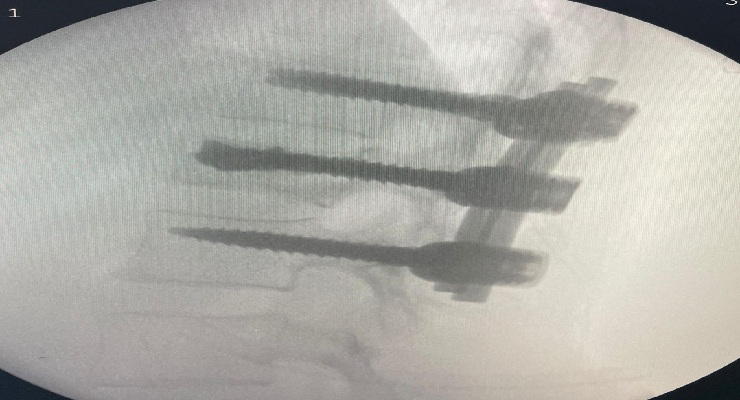
Spinal injuries in India occur commonly due to road traffic accidents or falls from height or due to industrial accidents. Spinal injuries can cause injury to the spinal cord and paralysis. Immediate stabilisation and treatment can improve the outcomes of spinal injury patients.
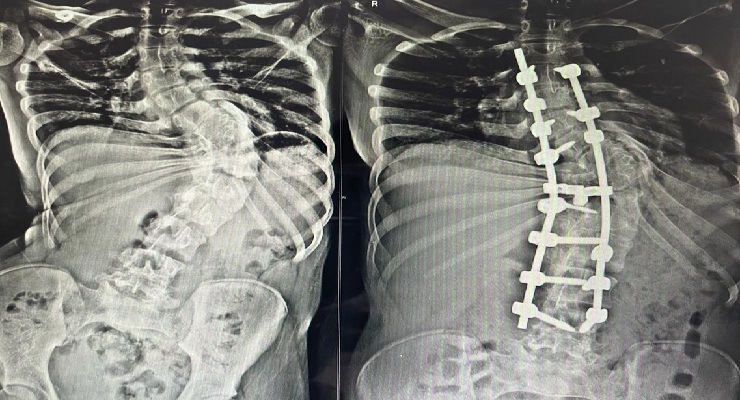
Scoliosis and kyphosis are spinal deformities characterized by abnormal curvature of the spine.

The field of spinal treatments has witnessed a remarkable advancement with the introduction of endoscopic spine surgery. This innovative approach prioritizes minimal invasiveness and accelerated recovery.

Unlike traditional open spine surgery, which requires a long incision, minimally invasive techniques involve making small incisions, often less than an inch in size.
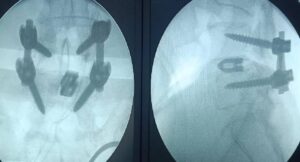
Lumbar fusion surgery is a procedure used to treat conditions affecting the lower (lumbar) spine, particularly when there is instability or abnormal motion between two or more vertebrae.
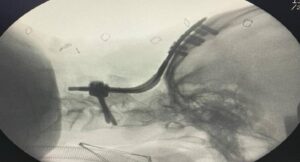
Cervical spine surgery refers to surgical procedures performed on the cervical spine, which is the portion of the spine located in the neck region.
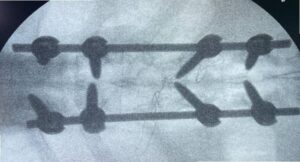
Spinal infections, also known as vertebral osteomyelitis or discitis, occur when bacteria, fungi, or other pathogens infect the bones (vertebrae) or discs of the spine.
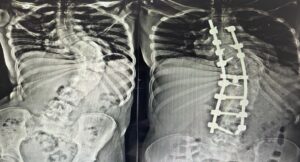
Scoliosis and kyphosis are spinal deformities characterized by abnormal curvature of the spine.

I am Deepthi from Andhra Pradesh,i took treatment for disc prolapse and underwent surgery.I am grateful to Dr Phani Kiran and his team for their treatment and patience to explain in detail to patient before surgery.Hospitality i received from nurses and staff and their constant caring and support.
Patient
I am N. Sridevi facing spine problem came to Dr. Phanikiran under went D7- transpedicular biopsy D6-D8 posterior fibilistation done Excelent & very good Dr. Phani kiran we are very much thankful to him and taking very care on patent upto date once more I am thanking you sir. "THE BEST DOCTOR FOR SPINE SURGERY"
Patient
We came here with lot of pain in spine.After surgery very much happy with treatment and services. Heartly thankfull to Dr Phani Kiran sir and Shiv Shankar(co-ordinator) sir. Very grateful for their services & treatment
MedSpine is a team of highly skilled and experienced professionals dedicated to spinal cord treatments. From board-certified neurosurgeons to specialized physical therapists, our team collaborates to offer comprehensive and cutting-edge care.
We invest in the latest advancements in spinal cord treatment technology to ensure our patients receive top-notch care. From minimally invasive surgical techniques to state-of-the-art imaging technology, we use innovative tools to diagnose and treat spinal conditions effectively.
At MedSpine, you are not just a patient – you are a valued member of our healthcare family. We prioritize open communication, empathy, and respect in all interactions to ensure you feel heard, understood, and supported throughout your treatment journey.
Our track record demonstrates our commitment to delivering superior outcomes and enhancing the quality of life for our patients. We are proud to have assisted numerous individuals in regaining mobility, alleviating pain, and restoring function to their spines.

The Ortho Clinic: Monday, Wednesday, Friday, Saturday.
Ojas Health: Tuesday, Thursday
© Copyright 2024 MedSpine. All Rights Reserved. Build with 🤍 by Digital GYB
WhatsApp us
Deepthi
Patient